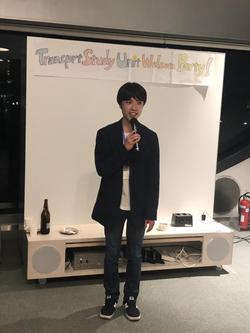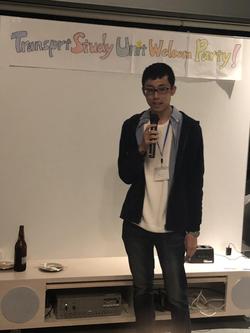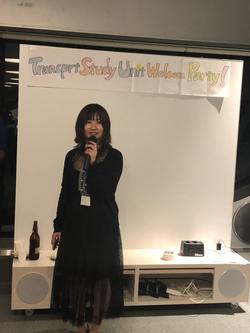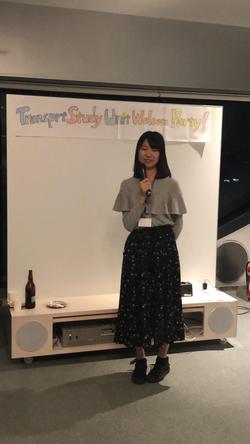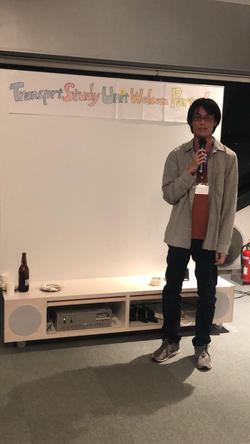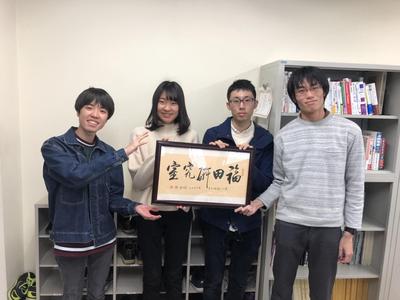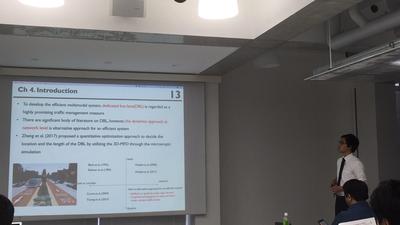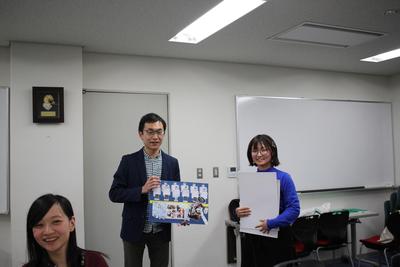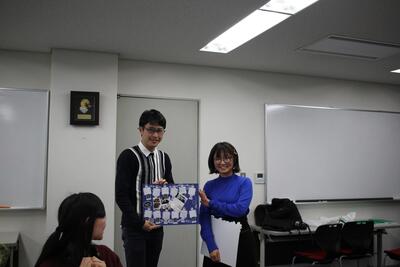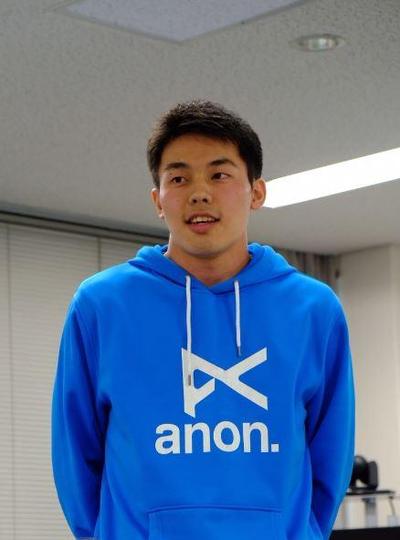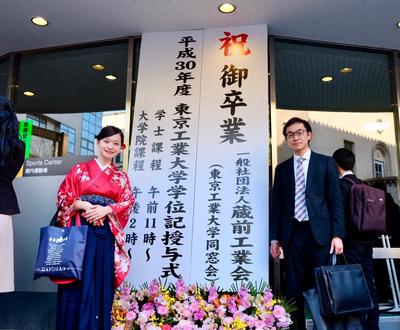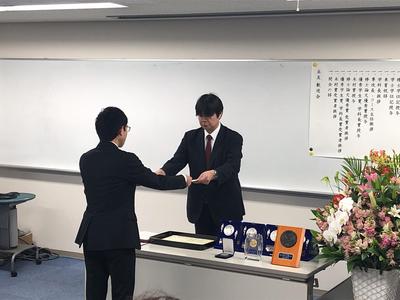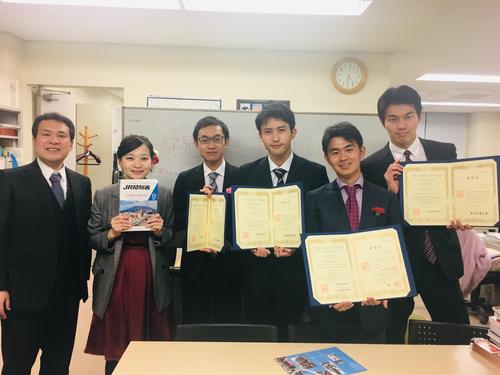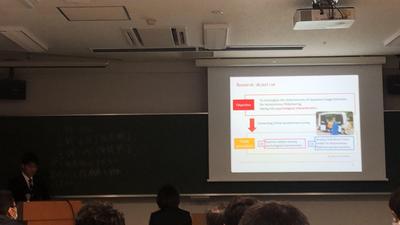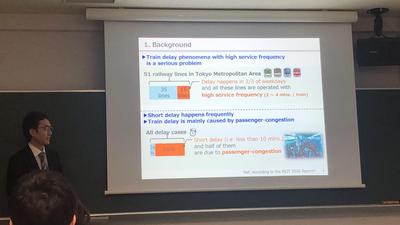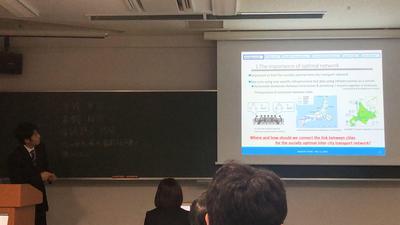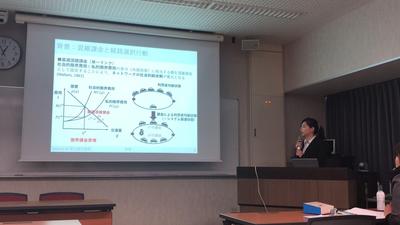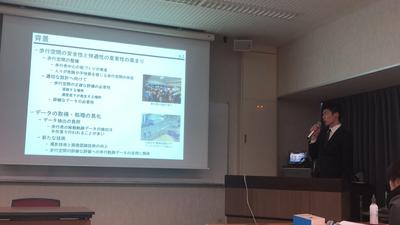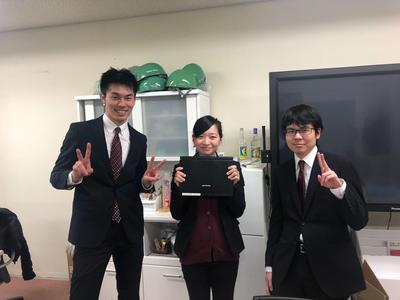TSU Welcome Party
[2019/04/22].
The annual TSU welcome party was held again this year. TSU (Transport Studies Unit) is a joint gathering of five transportation planning laboratories for seminars and events. I believe that we were able to deepen exchanges beyond the boundaries of the laboratories today.
We also asked each new student to introduce himself/herself and tell us something interesting that happened to him/her recently! Everyone has an interesting story. I am looking forward to seeing them in the future!
New members (April 2019)
[April 10, 2019]
Four new members joined our lab this April!
◯Undergraduate students, B4
Ms. Keiko Tabuchi
Mr. Kenta Ukai
◯Master’s students, M1
Mr. Hiroki Koyata
Mr. Hiroki Koyata
Also, Mr. Arata Gabe (M1) from Kamiya Laboratory, University of the Ryukyus, will be staying with us for 3 weeks. Our laboratory has become lively again.
Let’s work hard together in the lab from now on! (Kawai)
Interim Review of the Doctoral Thesis (Mr. Dantsuji)
[2019/04/10]
The interim review of the doctoral thesis was held and Mr. Dantsuji (D3) from our laboratory presented his paper. His research is titled “Modeling and Optimizing Multimodal Urban Transportation Systems: A Macroscopic Approach” and is based on a 3D-MFD (Three-dimensional Macroscopic Fundamental Diagram) to capture the congestion of cars and buses, and proposed a modeling and optimization method for efficient transportation systems. (Submitted by Kawai)
Lab Farewell Party 2019
[2019/3/28]
We held a farewell party for the M2 seniors who recently graduated.
Current students gave some colored papers to the M2s! Ms. Wang (M1) took the lead in making the colored paper.
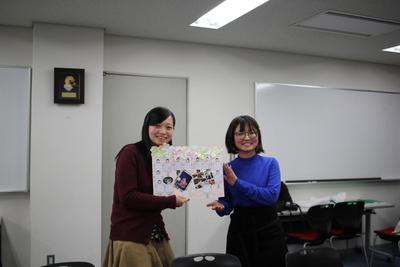
We also got all sorts of gifts from the M2 seniors!
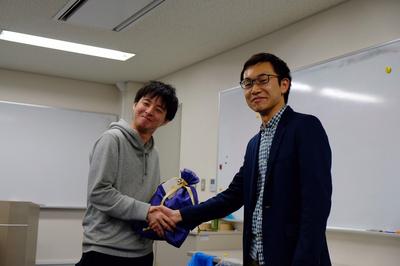
In addition, continuing from the previous day, the M2 students spoke one by one about their life in the lab and their aspirations for the future!
Come to think of it, it’s been a while since we’ve taken a group photo!
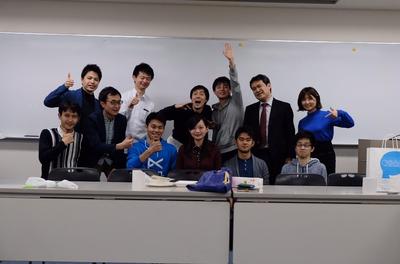
I would like to thanks the M2 seniors for everything they have done for me by taking this opportunity.
I hope we can get together like this again! We look forward to seeing with you in the future. (Kawai)
Graduation Ceremony and TSU Farewell Party
[2019/03/26]
Here’s the photo section from the recent graduation ceremony, congratulations to our B4s and M2s!
They look dazzling in their gowns and furisode!
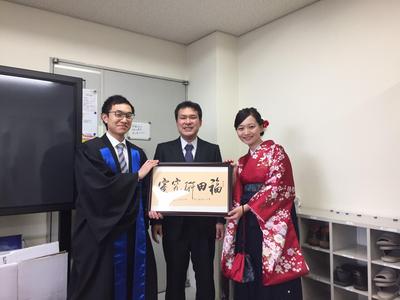
Here are two graduates from the Urban Environmental Studies course!
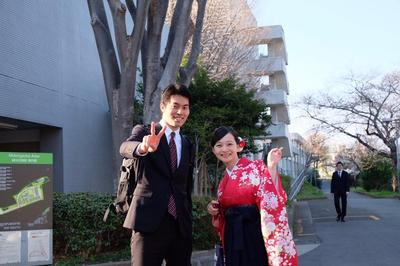
Next, each course of study was followed by a degree conferment ceremony.
After the graduation ceremony, we held a farewell party for the five TSU laboratories, where the B4 and M2 graduates spoke one by one about their lives at the university and in the laboratory, as well as their aspirations for the future. We hope that you will have many opportunities to interact with us in the future, and we look forward to seeing in the future!
2018 Graduation Ceremony (26th March)
The graduation ceremony for the academic year 2018 was held successfully. Ms. Noriko Kaneko, Mr. Arata Hirabayashi, Mr. Masahiro Imaoka, and Mr. Arata Suzuki graduated from the master course, while Mr. Yusuke Kita graduated from the bachelor course. They all worked hard from morning till night on their research. We wish them further success in their studies. Congratulations! (Fukuda).
Presentation of the graduation dissertation
[2019年2月19日]
Today, the undergraduate graduation thesis presentation of the Department of Civil and Environmental Engineering was held, and Mr. Kita (B4) from our laboratory presented his thesis.
Mr. Kita developed and analyzed a questionnaire survey based on the Stated Preference (SP) method. It was to investigate the intention to use a ride-sharing system with fully-automated vehicles.
The results of the analysis suggested that high preference for new products and general risk aversion tend to influence the intention to use the service, and that a small number of people of the same gender riding in the vehicle is preferred when using the service.
Today, all the undergraduate and master’s thesis submissions and presentations were completed, so we had a launch party after the thesis presentations!
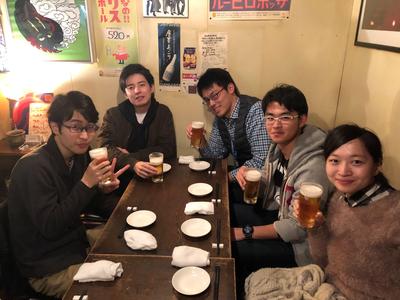
Master’s thesis presentation [Civil Engineering Course]
[2019/02/12]
Today, the master’s thesis presentation of the Civil Engineering course was held. (M2 students) Mr. Suzuki and Mr. Imaoka from our laboratory gave their presentations. All the presentations and Q&A sessions were conducted in English, and thanks to their hard practice, everyone presented in fluent English. Thank you very much for your presentation!
In addition, there were many questions from professors from other fields other than civil engineering, and there was a lively discussion during today’s presentations. Thanks to all the professors who asked questions.
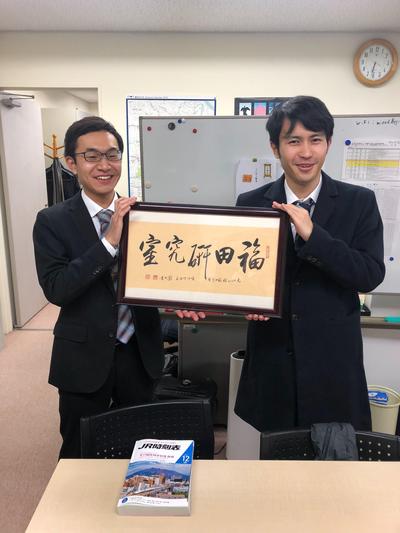
Master’s thesis presentation [Urban and Environmental Studies Course]
[2019年2月5日]
Today, the master’s thesis presentation of the Urban and Environmental Studies course was held. (M2 students) Ms. Kaneko and Mr. Hirabayashi from our laboratory gave their presentations.
Unlike presentations in civil engineering and urban planning, students from various fields made presentations here. Hence, they focused on conveying difficult research content in an easy-to-understand manner for people from other fields. As a result of continuing to practice presentations and preparing materials until late every day, they were able to make a highly complete presentation. Thanks for their hard practices!
Moreover, thanks to all the teachers who asked questions.
PS: Ms. Kaneko won the second place overall in the voting for the best presentation held after the presentation. It was very close to the 1st place, but it is wonderful. Congratulations! (Fukuda)
Master’s Thesis Submission Part 2
[2019/01/31]
Today, Mr. Hirabayashi and Ms. Kaneko, M2 students in the Urban and Environmental Studies course, have have completed the main body of their master’s thesis.
Mr. Hirabayashi’s thesis, entitled “Extraction of Distribution Patterns of Speed-Density Relationship of Pedestrian Flow Considering Spatial Correlation,” is aimed at establishing a precise pedestrian space evaluation index necessary for ensuring safety and comfort in walking spaces, using detailed pedestrian movement trajectory data and a method to extract spatial patterns that enables understanding of local spatiality. The establishment of this method was carried out.
Ms. Kaneko, in her thesis entitled “Research on Sequential Route Selection Model and Optimal Congestion Charging,” developed a framework for optimal congestion charging under Markovian Traffic Equilibrium (MTE), which is an equilibrium allocation based on a Markov process in which travelers select routes sequentially, and implemented it on a large-scale network.
